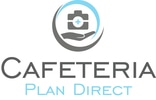|
The Internal Revenue Service (IRS) has increased required contribution percentages for 2015 that are used to determine whether individuals are eligible for a premium tax credit (which would trigger penalties under the Affordable Care Act’s employer shared responsibility or "pay or play" provisions), and whether individuals are eligible for an affordability exemption from the individual shared responsibility provisions (the "individual mandate").
Individual Mandate Affordability Exemption The individual mandate requires every individual to have minimum essential health coverage for each month, qualify for an exemption, or make a payment when filing his or her federal income tax return. One such exemption applies when the individual cannot afford coverage because the minimum amount he or she must pay for the premiums is more than 8% of the individual’s household income. This percentage is increased to 8.05% for plan years beginning in 2015. Premium Tax Credit Eligibility An individual may be eligible for a premium tax credit to purchase health coverage through the Health Insurance Marketplace (also known as an Exchange) if, among other things, he or she is not able to get affordable coverage through an eligible employer plan that provides minimum value. For this purpose, an employer-sponsored plan is affordable if the portion of the annual premium an employee must pay for self-only coverage does not exceed 9.5% of his or her household income. This percentage is increased to 9.56% for plan years beginning in 2015. Pay or Play Penalties References to 9.5% in the pay or play regulations regarding penalties for failing to offer health coverage and use of the affordability safe harbors have not been updated; however, employers subject to pay or play will not be liable for a penalty under these regulations unless a full-time employee receives a premium tax credit (as stated above, 9.56% will be used to determine eligibility for the tax credit). Employers intending to take advantage of one or more of the three affordability safe harbors should consult a knowledgeable benefits attorney or tax specialist for specific guidance on how to proceed. You may read the IRS guidance in its entirety for more information.
0 Comments
Leave a Reply. |
Small Business blog
Archives
June 2023
Categories |

 RSS Feed
RSS Feed
